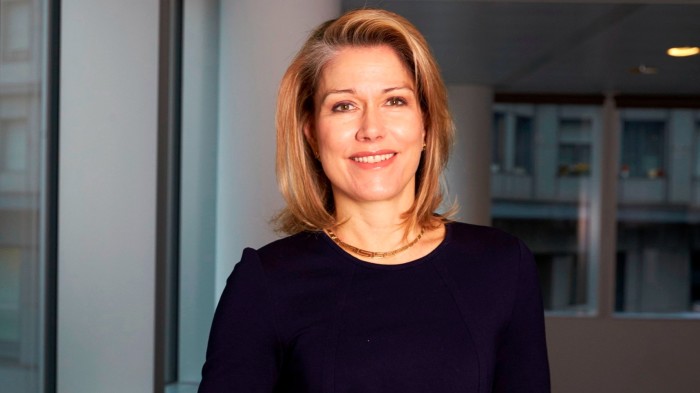Unlock the White House Watch newsletter for free
Your guide to what the 2024 US election means for Washington and the world
Leda Braga’s Systematica Investments, one of the world’s best known computer-driven hedge funds, is suffering its worst ever losing streak in its flagship fund, as the market turmoil triggered by US President Donald Trump’s trade war catches out many of the industry’s biggest names.
A daily liquidity version of the firm’s $4bn BlueTrend strategy is down 18.8 per cent this year, according to public disclosures for the Schroder Gaia BlueTrend fund. It is down almost 36 per cent from its previous peak in 2022.
Braga is one of the most prominent women in the hedge fund industry, founding Systematica in 2015 as a spinout from billionaire Michael Platt’s BlueCrest Capital. Systematica now manages around $17bn in assets.
BlueTrend was hit by big moves in markets such as natural gas, silver and coffee, and by the lack of protection provided by the US dollar and Treasuries, which sold off at the same time as equity markets this month, according to a person familiar with the matter.
Computer-driven hedge funds have suffered significant losses in recent weeks as the huge volatility caused by Trump’s tariffs have caught their sophisticated trading models off guard.
One of their main strategies — trying to latch on to persistent market trends — has been particularly hard hit as markets have quickly changed direction.
“When there is an overnight flip-flop on a particular policy that can whipsaw trend followers and we have seen that over the past week or so,” said one quant hedge fund executive.
Man’s flagship trend following fund AHL Alpha is down 5.2 per cent in April and down 9.4 so far this year, while Winton Group’s Diversified Macro fund, which bets on market trends and other strategies, is down 6.9 per cent this year as of April 11.
Rotterdam-based Transtrend’s Diversified Trend fund has lost 18.7 per cent this year, with losses coming primarily from commodity and currency bets, according to a spokesperson.
An index compiled by Société Générale and tracking trend following funds is down 10.8 per cent for the year. A broader index of quant funds focused on futures trading was down 5.9 per cent this month to April 10, and down 8.29 per cent year-to-date, as of Thursday.
Quant giant Renaissance Technologies’ biggest fund available to external investors lost 8 per cent this month to April 4. The fund was still up 4.4 per cent for the year.
Like many investors, quant funds began the year strongly, helped by optimism that Trump’s plans for tax cuts and deregulation would fuel economic growth.
But markets turned as fears grew over the impact of his proposed tariffs, with stocks plunging following his so-called “liberation day” on April 2.Treasuries, typically seen as a haven asset during times of stock market stress, have also sold off sharply, wrongfooting some investors.
“Anything that happens on this scale and in this short an amount of time is going to create a lot of damage,” said an executive at another quant hedge fund.
But the executive at the first firm said that while the market shock from Trump’s tariffs had been painful, the subsequent “ripple effects” of the huge policy shift could still be beneficial for quant hedge funds. For instance, if tariffs lead to higher inflation, then assets such as gold could continue to rise.
“Trend following often needs big macro shifts because that is where you see knock on effects in different markets with trends you can exploit,” the person added.




